Where There’s a Will There’s a Way
They say where there’s a will, there’s a way and if ever a profession needed to believe this mantra, it’s that of screenwriting. So pump yourself up, splash some cold water on your face and, as infamous ENTOURAGE uber-agent Ari Gold would say: “strap on a helmet and start shooting…this is Malibu!”
Because as these iron-willed scribes will attest, tenacity and a never-say-die attitude aren’t just important in this business, they’re a pre-requisite.
“This is a ‘last laugh’ business. If you can survive as people are kicking you in the head, eventually their leg will get tired”.
– Billy Ray
Ten Tales of Screenwriting Never Say Die
 1. Melisa Wallack
1. Melisa Wallack
THE DALLAS BUYERS’ CLUB
“We founded NightOwl Discovery in 1991 and for years worked incredibly hard to build something meaningful in a very high-stakes, high-stress environment. I moved to Los Angeles in 1995 to head our West Coast operations but never ceased my true passion of writing. I started meeting a lot of writers, then, about six years ago, I decided to give it a try myself. I ended up sitting in a room writing eight hours a day. We did so much research. I think I spent six months just reading, trying to understand placebos, double-blind studies, the protocols, the laws. You have to be an expert in these kinds of things. You just have to know everything about the industry in general before you start writing.”
2. Ron Bass
RAIN MAN, SLEEPING WITH THE ENEMY, SNOW FALLING ON CEDARS
Bass was a lawyer with his own practice when looking to make the leap to professional writing. “I got up at 3am, wrote until 6, the kids got up, I spent time with them until 7am, and then got to work by 8 and was a good lawyer until 6, had dinner with my wife, and played with the kids. All weekend long I’m writing, and on vacations I’m writing like crazy. I wrote four scripts in a year-and-a-half while I was practising law”. Today, Bass works an average of 14 hours a day, 7 days a week. This breaks down into 6 hours of writing his current script, meetings and calls for 2 hours, and 4 hours a day developing his next script. He also exercises daily, riding 30 minutes on a stationary bike as soon as he wakes up, and lifts weights every other day.
“I’m divorced, and I might not be had my career not been as wonderful but as consuming as it was. This business is so hard to get into that once you do, you never want to let it go and the ability to regulate your participation doesn’t come easily. Sometimes, like with anything in life, other good things fall by the wayside…”
– Akiva Goldsman
3. Akiva Goldsman
I AM LEGEND, CINDERELLA MAN, I ROBOT, A BEAUTIFUL MIND, A TIME TO KILL, THE CLIENT
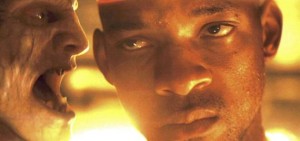
“Before screenplays, I wrote fiction and short fiction but mainly unsold fiction. I wasn’t particularly good, but I was very persistent. I got a job working with severely emotionally disturbed children, and wrote at night. By the time I was 28 or 29 I realised I wasn’t going to make it as a fiction writer and I thought, “My God there’s gotta be some way of doing this”. Goldsman persisted, and persisted, and has gone on to have one of the biggest screenwriting careers in Hollywood in recent times. Nonetheless, “the life” has been all-encompassing: “I was lucky early on, but the downside was that my career became my life. Now I’m divorced, and I might not be had my career not been as wonderful but as consuming as it was. This business is so hard to get into that once you do, you never want to let it go and the ability to regulate your participation doesn’t come easily. Sometimes, like with anything in life, other good things fall by the wayside…”.
4. Leslie Dixon
MRS. DOUBTFIRE, THE THOMAS CROWN AFFAIR, PAY IT FORWARD, LIMITLESS
“If I had known (how tough it would be), I wouldn’t have tried. I had been on my own since I was 18, and couldn’t afford to go to college. And there was so little information. You have to realize this was pre-internet. You couldn’t enter your script in a screenwriting contest. You couldn’t even learn how to write a script properly. There was nobody anywhere around me, and nothing I could even get from a bookstore that conveyed correct screenplay form. So no one was going to teach me how to do it. But I felt that if I could get to Los Angeles, I could do things there, like get a library card from AFI and check out scripts and read them. That was the primitive nature of information gathering in those days. I got a job that paid me to read scripts, which is how I started reading screenplays, and very quickly got an idea of what was and wasn’t being bought, and of how you arrange the words on the page”.
“I was committed to making it in show business. I refused to date or do anything else but write. I was writing nights and weekends and I wasn’t happy until I did it”.
– Jim Kouf
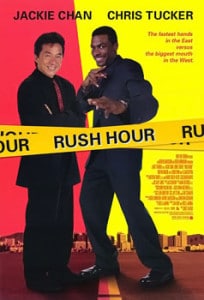
4. Jim Kouf
RUSH HOUR, NATIONAL TREASURE, STAKEOUT, ANOTHER STAKEOUT
“I was committed to making it in show business. I refused to date or do anything else but write. I was writing nights and weekends and I wasn’t happy until I did it. I ate, slept and thought of nothing but writing. The only thing that would have forced me to quit is if I couldn’t make it after 10 years. I didn’t have a family when I was starting out because at the very beginning, show business will steal your life. You have to be totally committed to getting in, you have to live, eat, breathe it, meet people in it, and become friend with them”.
5. Antwone Fisher
ANTWONE FISHER
“I used to be homeless when I was a teenager, because I didn’t have any family. I had heard no all my life, and that I would never accomplish this or that. After being in the Navy for 11 years there were a lot of things that I accomplished that previously I thought I could not”. “I wrote 41 drafts of my script before the producer, Todd Black, felt like he could give it to Fox. The executives gave me a lot of notes, and then Denzel (Washington) and Todd and I worked on it for almost 6 years. I must have written over a 100 drafts of the script in total”.
6. Frank Darabont
THE SHAWSHANK REDEMPTION, THE GREEN MILE
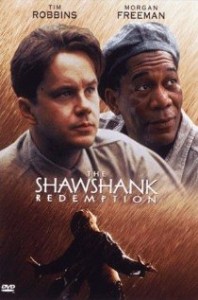 “Even when I was in junior high school, I was writing screenplays. You know, I’d write a Star Trek episode even though Star Trek was no longer on the air. Once I graduated high school, I started applying enormous amounts of time to getting a screenwriting career going. That became a very, very focused effort in my early twenties, during which time I was set dressing, which is nailing sets together, bringing the furniture in, putting the stuff on the walls that the director has chosen. I was not making much money doing it, but it kept the rent paid, and when the job was over, I would have enough saved up to sit at home for a month and just write. I treated writing like a full-time job. I would sit at home until the bank account bottomed out, and then I’d call my friend Greg, who was an art director and say, “get me on the next gig, dude!” Nine years after graduating high school I started making a living as a screenwriter, and I haven’t looked back – but that nine years involved a lot of sittin’ in the chair and trying to figure out how to become a professional-level screen storyteller.”
“Even when I was in junior high school, I was writing screenplays. You know, I’d write a Star Trek episode even though Star Trek was no longer on the air. Once I graduated high school, I started applying enormous amounts of time to getting a screenwriting career going. That became a very, very focused effort in my early twenties, during which time I was set dressing, which is nailing sets together, bringing the furniture in, putting the stuff on the walls that the director has chosen. I was not making much money doing it, but it kept the rent paid, and when the job was over, I would have enough saved up to sit at home for a month and just write. I treated writing like a full-time job. I would sit at home until the bank account bottomed out, and then I’d call my friend Greg, who was an art director and say, “get me on the next gig, dude!” Nine years after graduating high school I started making a living as a screenwriter, and I haven’t looked back – but that nine years involved a lot of sittin’ in the chair and trying to figure out how to become a professional-level screen storyteller.”
7. Adam Rifkin
MOUSEHUNT, SMALL SOLDIERS
“I was hired to direct a movie called Barb Wire, which starred Pamela Anderson. I had made a number of independent films. This was a bigger film, she was a high-profile figure – on paper it seemed like the smart career choice, even though some voice inside of me said: “this isn’t what I feel passionate about”. Ultimately, I got fired off that movie. I got caught in the middle of a political battle between Dark Horse Comics, who owned the character, and Propaganda Films, who was financing the movie.
All the people who had called to congratulate me for getting the job wouldn’t return my calls after I’d been fired, because it was on the front page of the trades. I thought to myself: “I could either sit around and feel sorry for myself, or I could use the only power I have in Hollywood – the ability to generate material. I sat in a room and went on a writing frenzy. The first script I wrote didn’t sell. The second script I wrote didn’t sell. And then I had an idea for a movie.
I had never written a family movie before, and told Brad Wyman, the producer: “I’ve had this idea for a movie, but I think it’s too stupid, I shouldn’t write it. He said, “what is it?” I said: “it’s about two brothers who inherit a drafty old house that’s worth a lot of money, and there’s a mouse in the house, and they become obsessed with killing the mouse. But the mouse is a lot smarter than they are, and the mouse ruins their lives. It’s kinda like a live-action Tom and Jerry”.
He said: “you should write that immediately. You’ll sell it for $1m”.
I wrote it really fast, and I thought: “there’s no way this is gonna sell. This is too stupid”. But I just got into all the cartoons I loved when I was a kid, went to that well for inspiration. While Barb Wire was still in production, Mouse Hunt went out as a spec, got into a bidding war between a number of studios, and Dreamworks bought it for $1m.
If there’s a point to this story, it’s that screenwriting is all about rejection. Every screenwriter is rejected over and over again. The only thing that you can do is love what you do and keep doing it – because eventually it’s gonna pay off. For me, that was an example of ignoring the rejection and plowing forward, and it turned out to be the best thing that ever happened to me”.
8. Stephen Susco
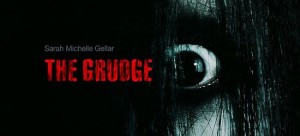 THE GRUDGE, THE GRUDGE 2, RED
THE GRUDGE, THE GRUDGE 2, RED
“I’ve had three movies made to date: THE GRUDGE in 2004, THE GRUDGE 2 in 2006, and RED in 2008. That’s three scripts. I’ve written thirty-eight screenplays. THE GRUDGE was my first film. It was my twenty-fifth screenplay”.
9. Nancy Meyers
PRIVATE BENJAMIN, FATHER OF THE BRIDE, JUMPIN’ JACK FLASH, THE PARENT TRAP
“I remember driving on the Ventura Freeway when I was about 27, to run an errand, when I thought, ‘What if a girl joined the Army to escape her problems?’ Private Benjamin,’ got turned down by every studio until the very last one, but I just kept thinking, ‘Why are you people not seeing that this is a hit movie? What is wrong with you?'”.
 10. Jennifer Lee
10. Jennifer Lee
FROZEN, WRECK-IT RALPH
“It’s definitely a struggle. It depends on where you are in the (development) process. Certainly, in the very beginning, when you’re starting almost from nothing and you’re building it, it’s very hard to push a vision through. Usually, there’s one idea you’re holding onto, and you have to keep reminding everyone, because you need to be open. But you always have to draw on what moves you, what affects you, what excites you.”
**This article is an homage of sorts to two quite outstanding books on screenwriting, which we strongly urge all our clients and students to buy and read. They are…***
“The 101 Habits of Successful Screenwriters” by Karl Iglesias
“Tales from the Script” by Peter Hanson and Paul Robert Herman
– What did you think of this article? Give it a rating and let us know your thoughts in the comments box further down…
– Struggling with a script or book? Story analysis is what we do, all day, every day… check out our range of services for writers & filmmakers here.
Get *ALL* our FREE Resources
Tackle the trickiest areas of screenwriting with our exclusive eBooks. Get all our FREE resources when you join 60,000 filmmakers on our mailing list!

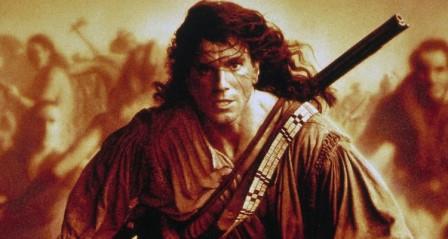
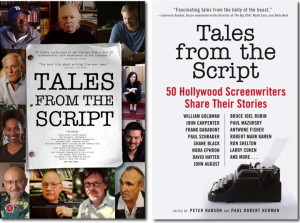
Inspiring. Thank you.
Welcome!
Nice work.
Thanks for the advice
Pieter Pretorius